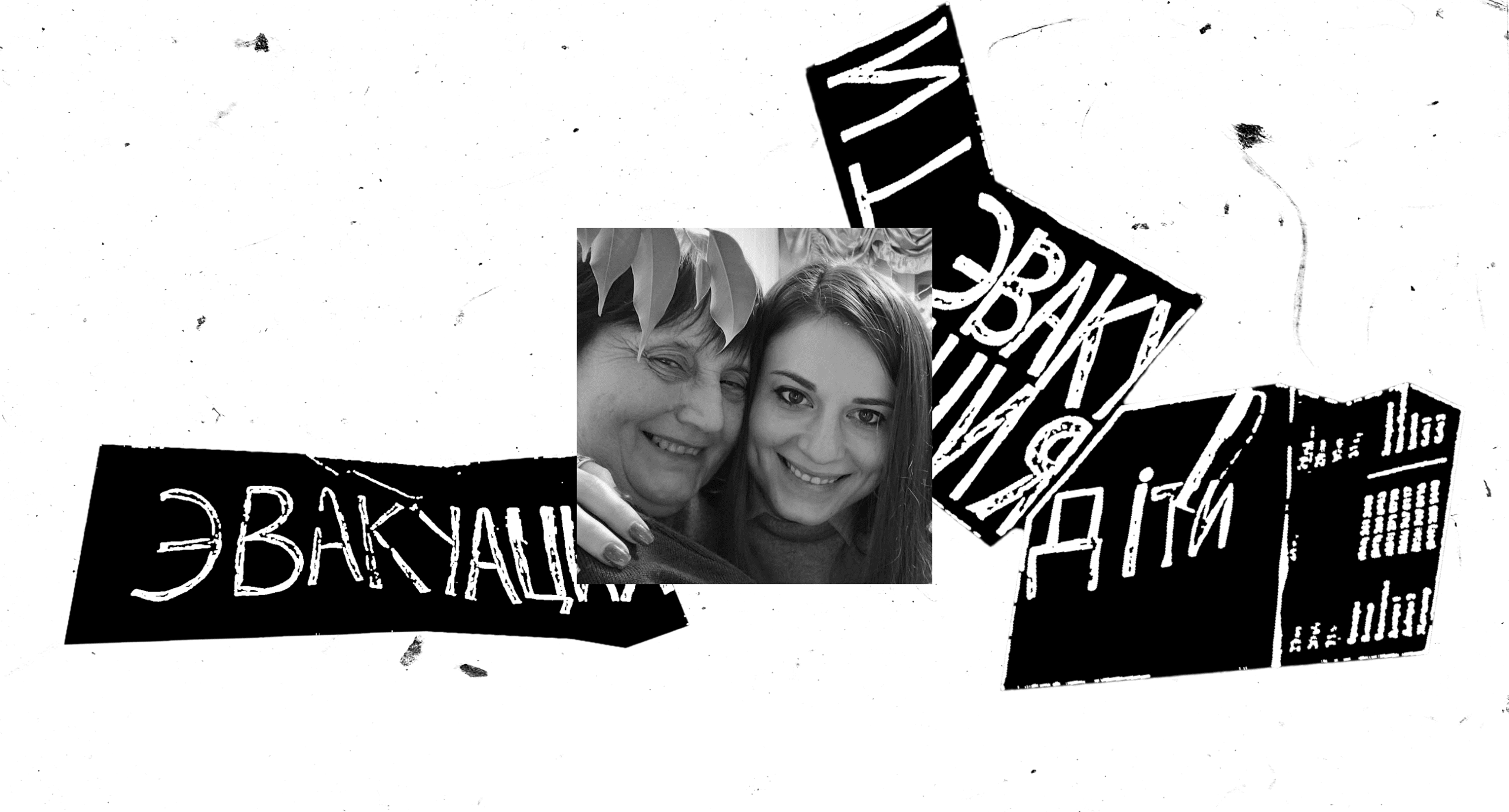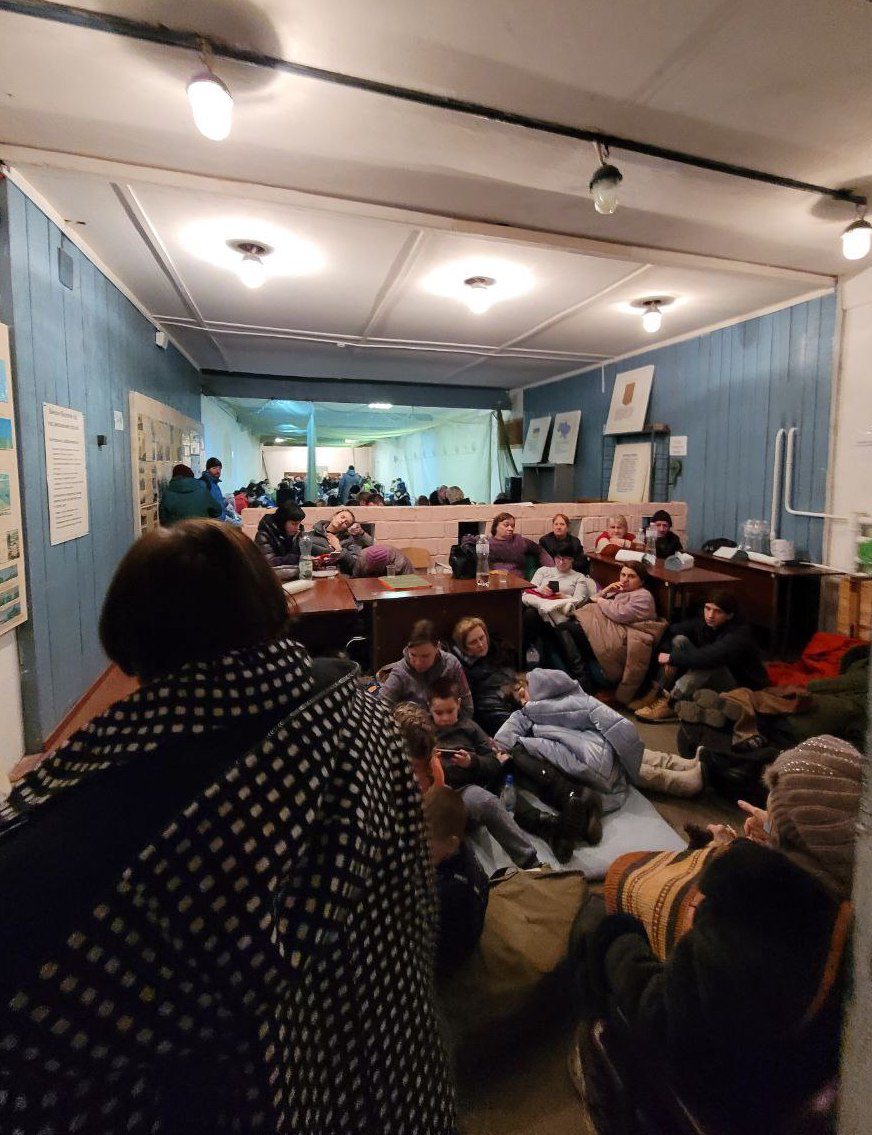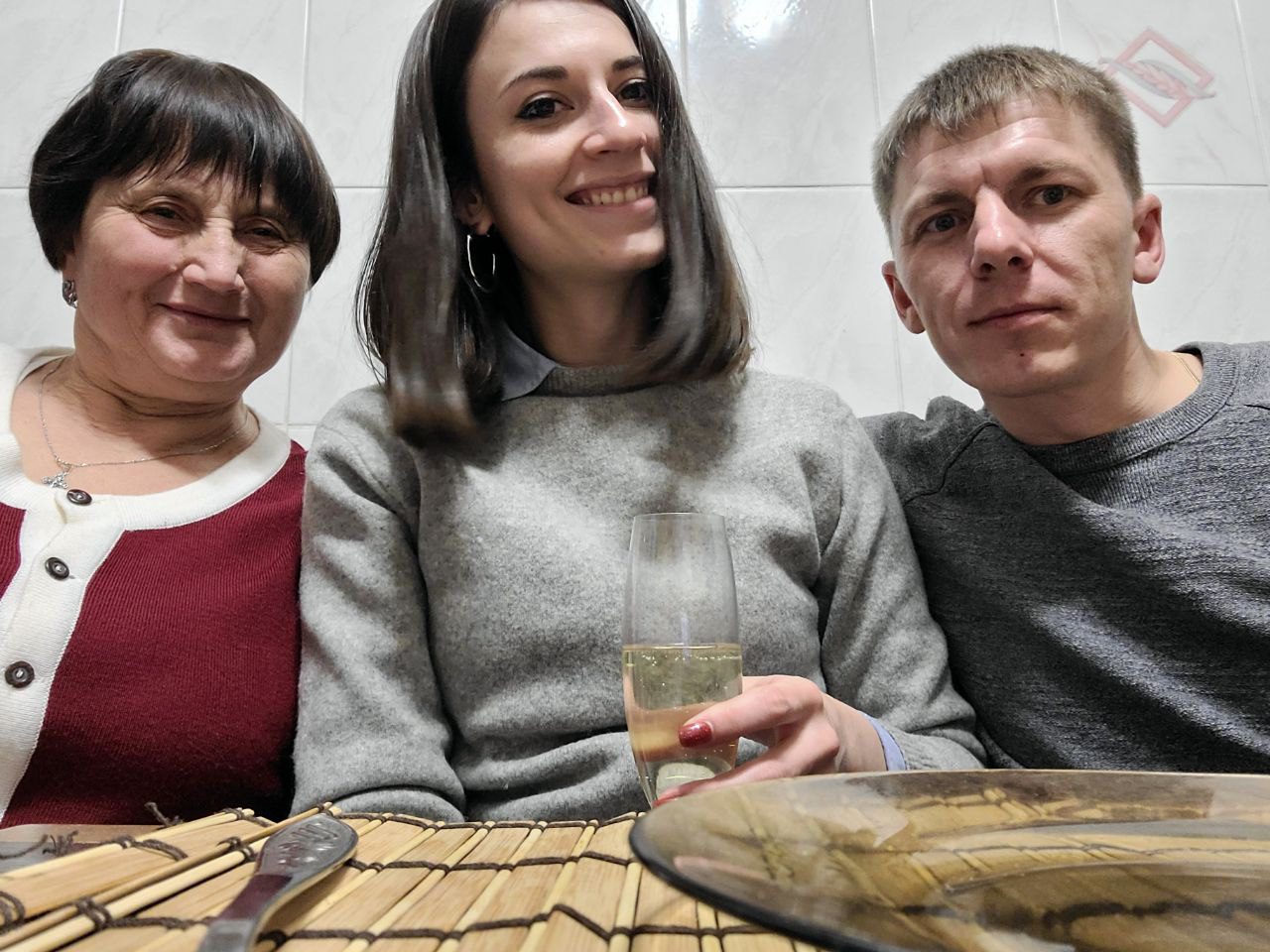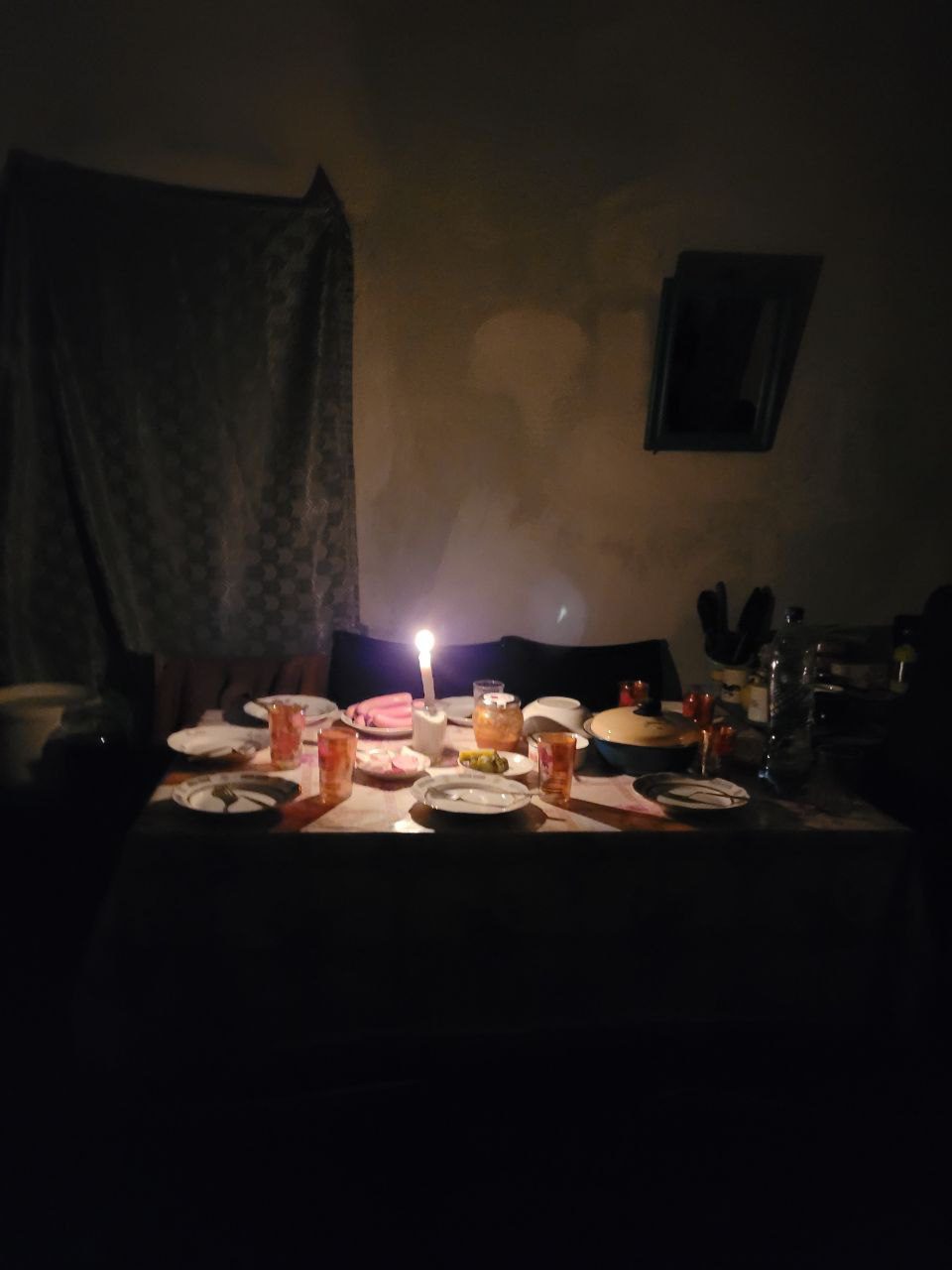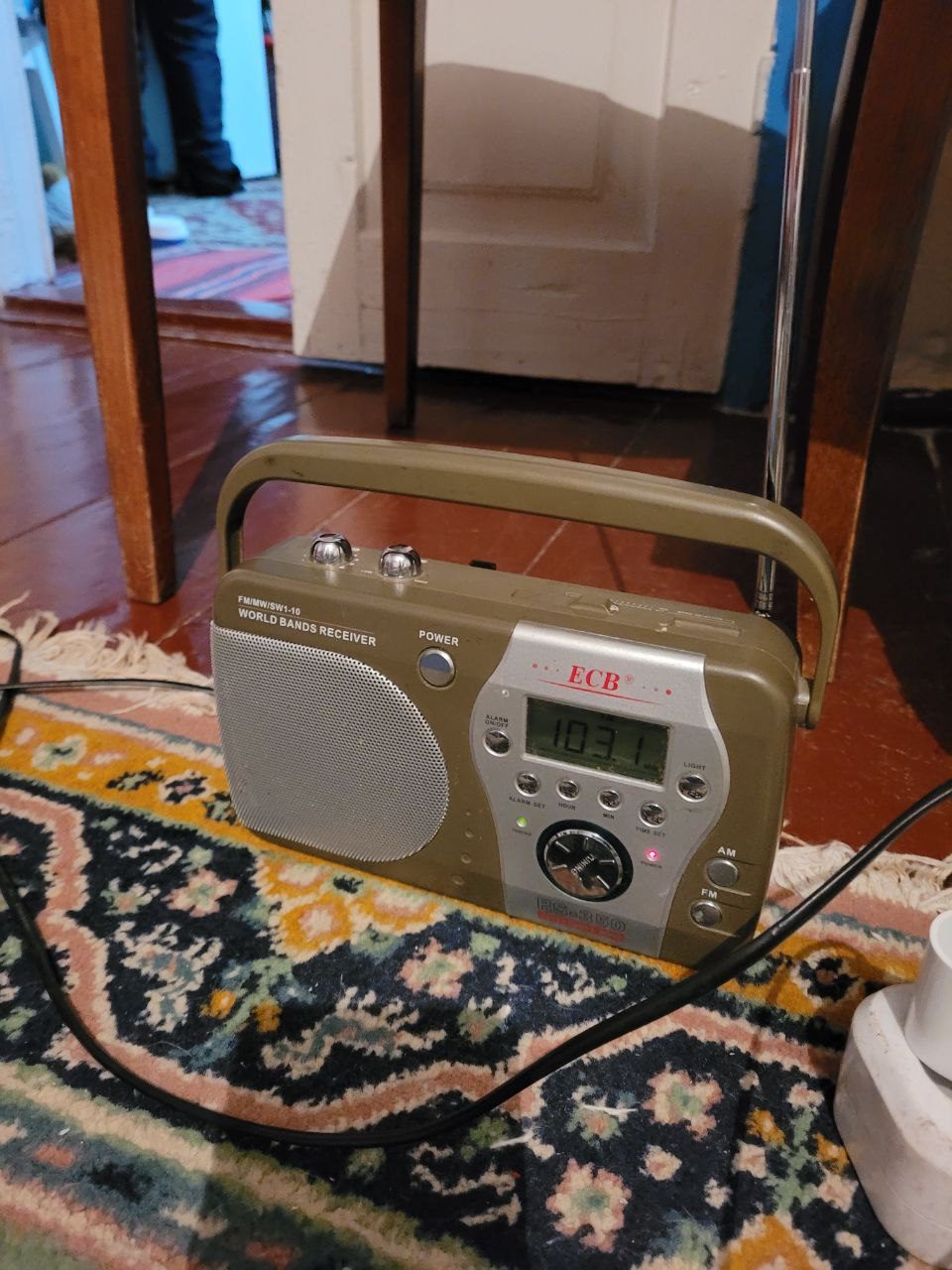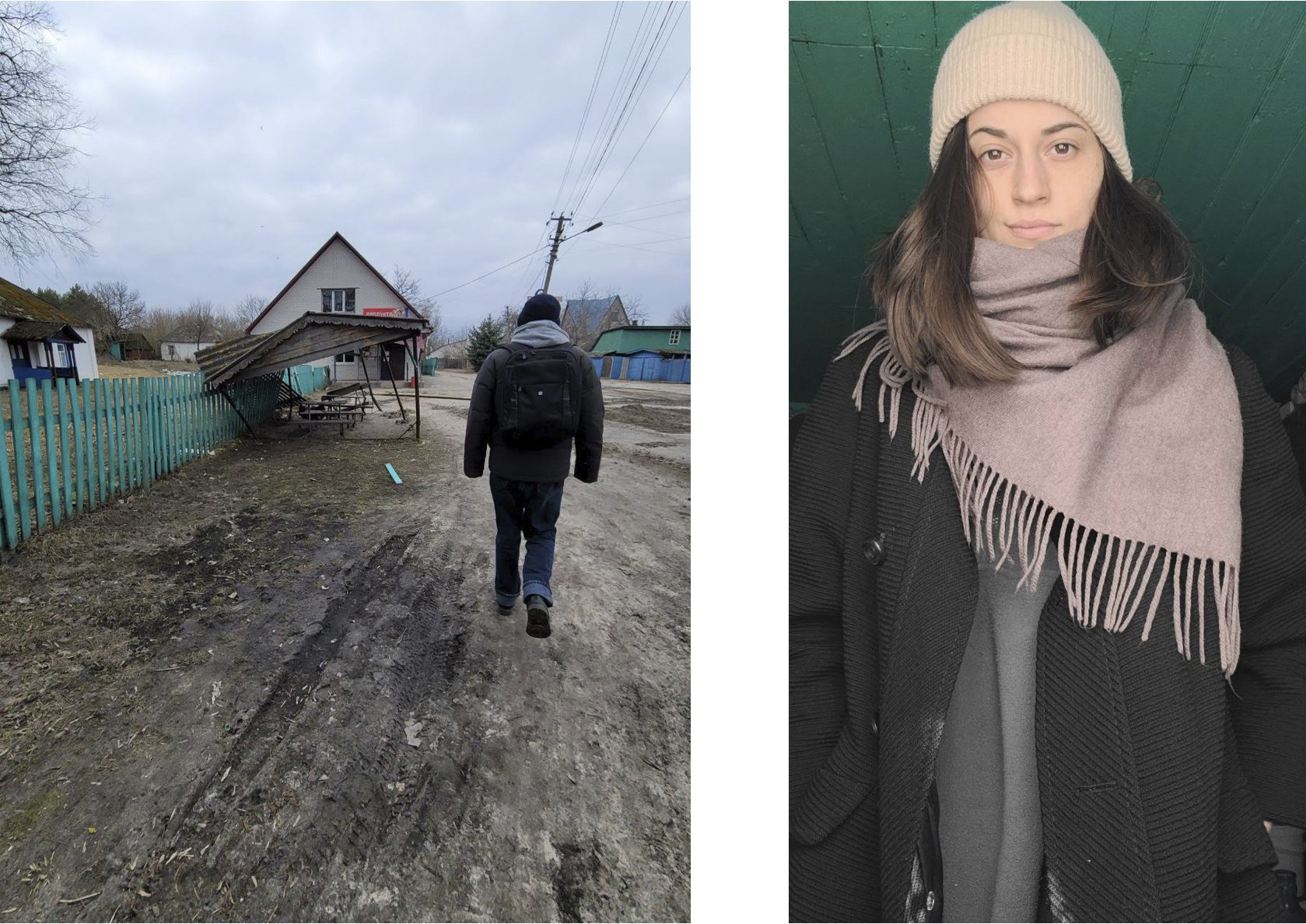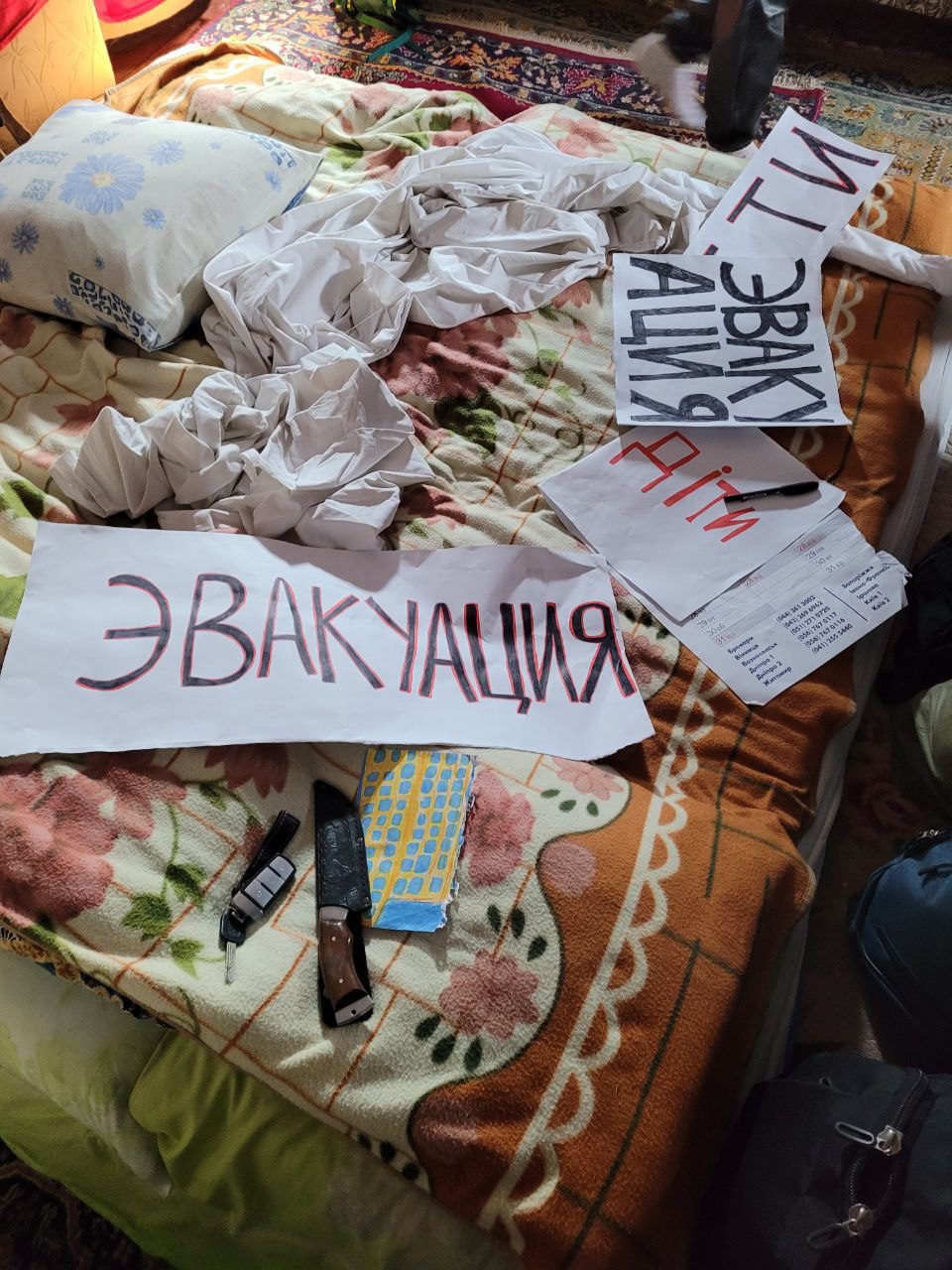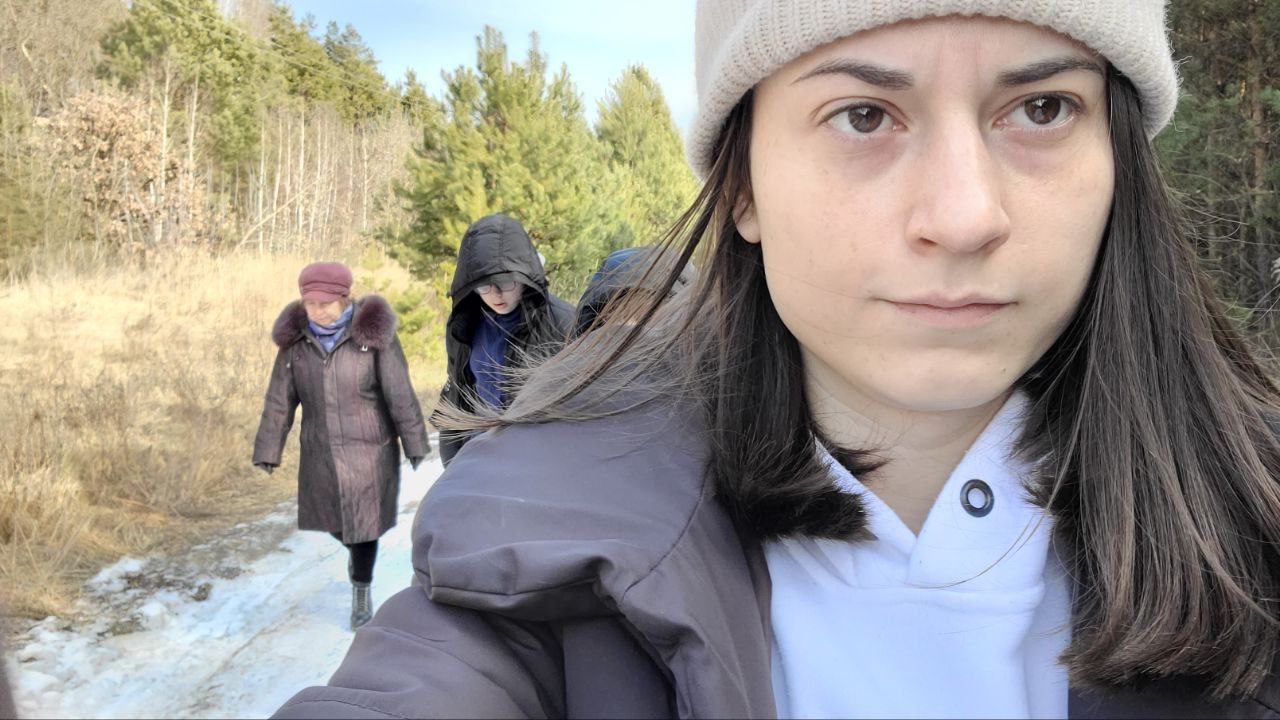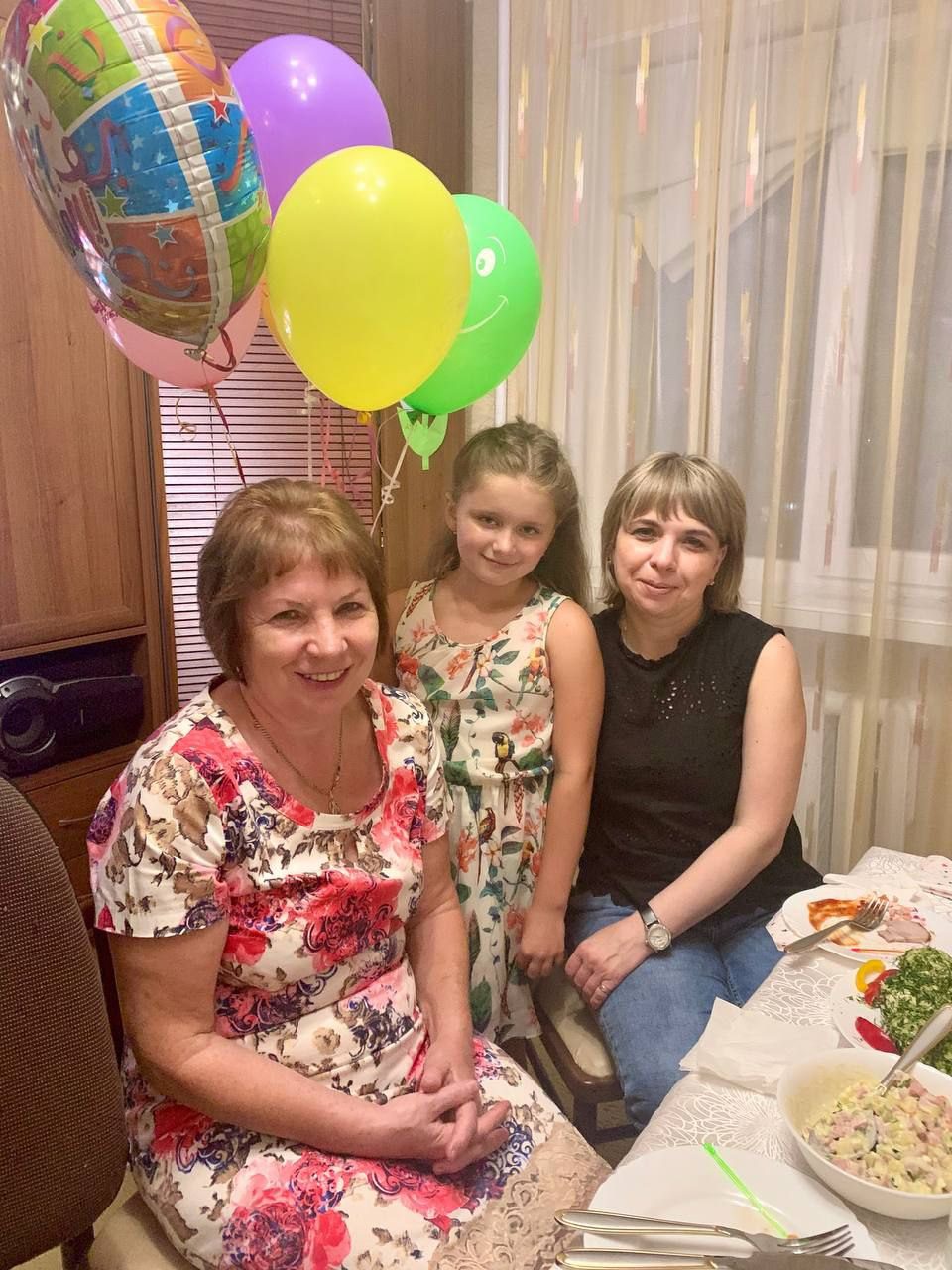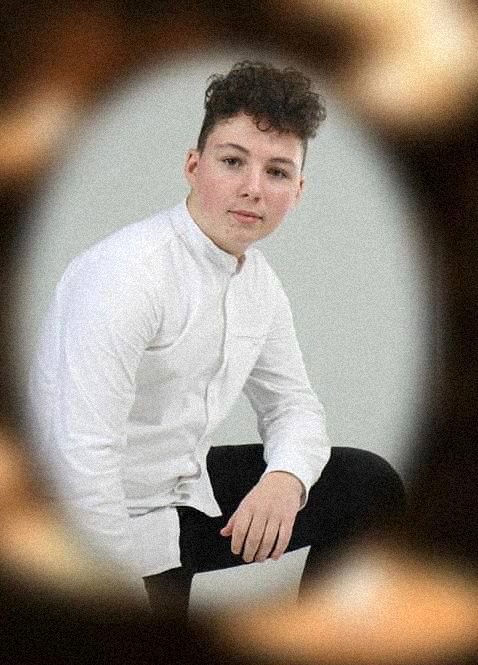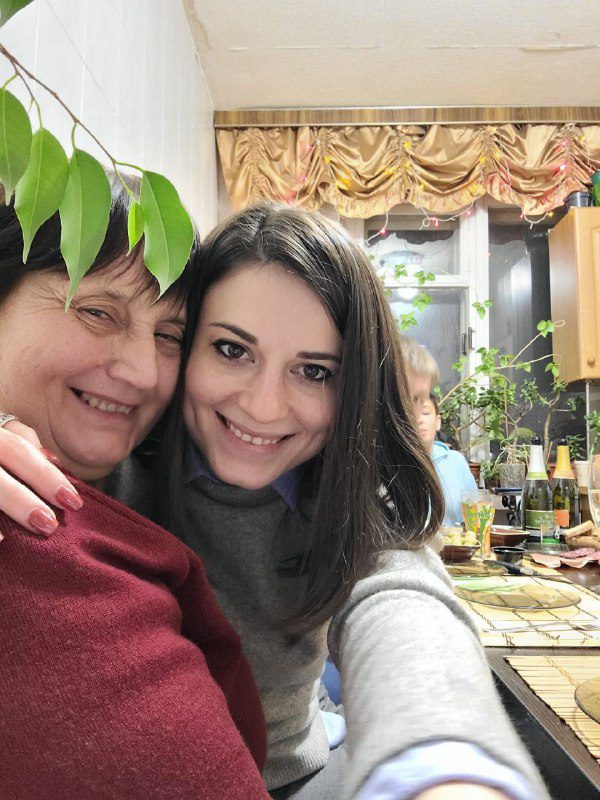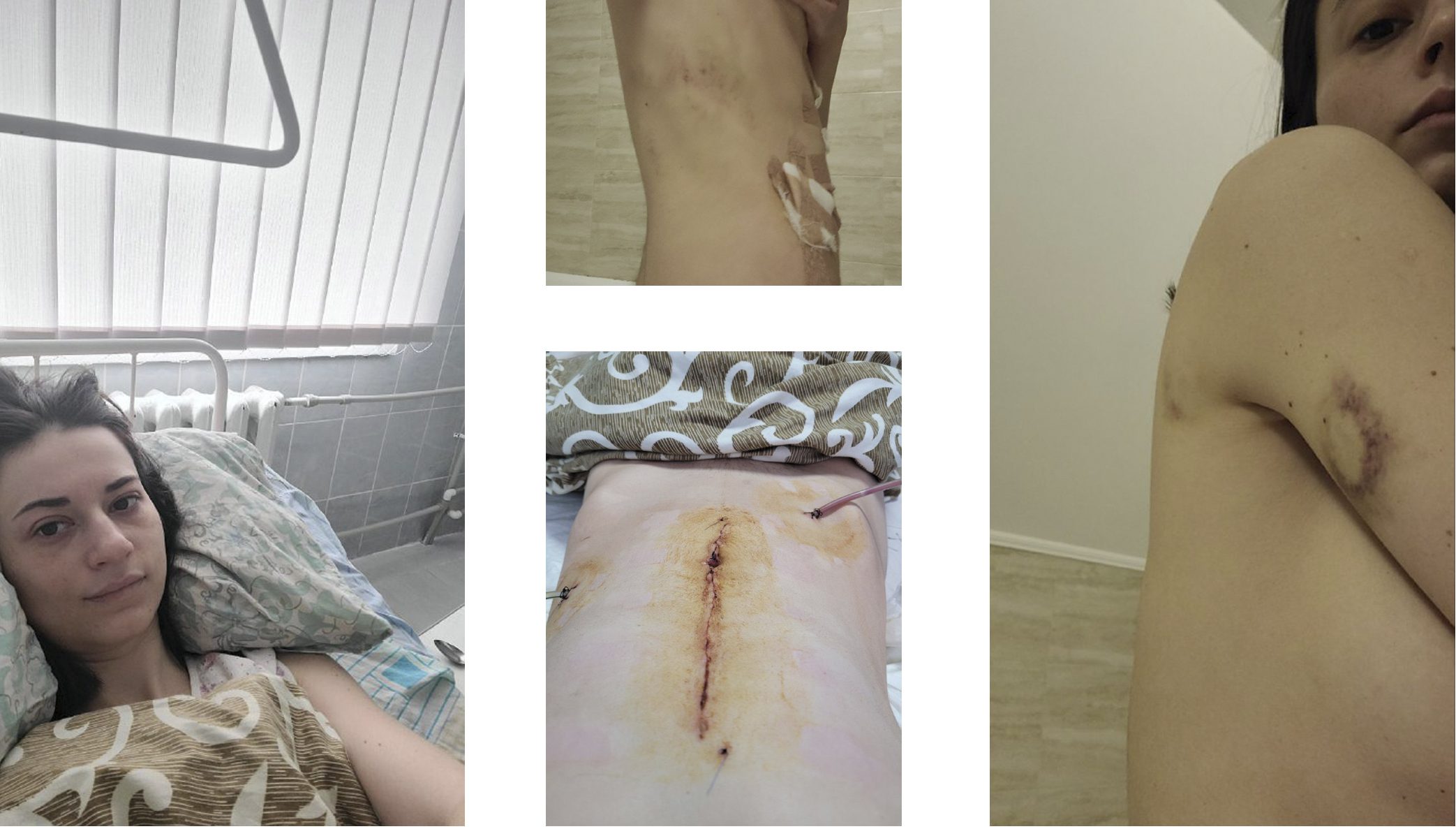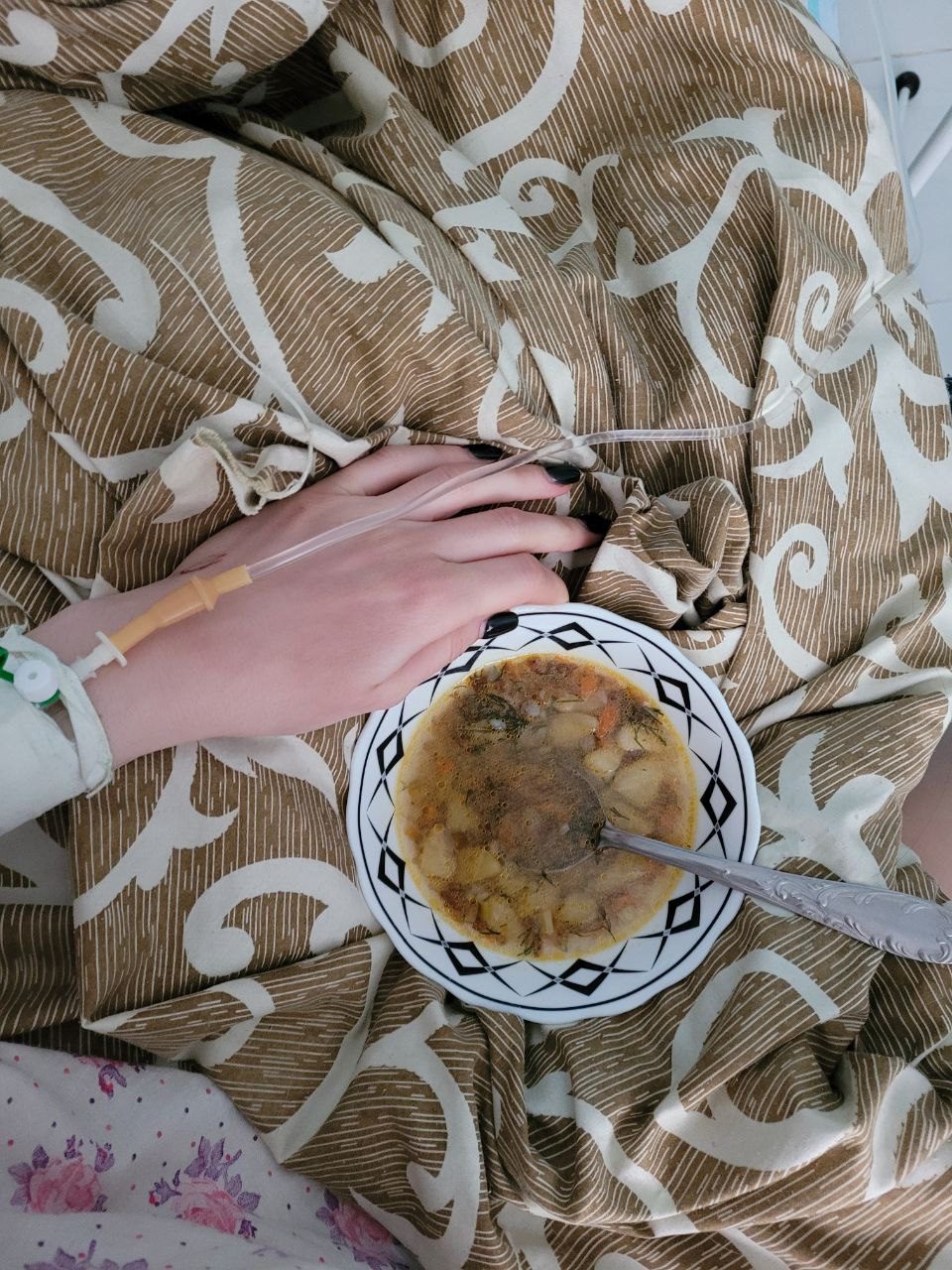We still have a lot to read and write about all the occupiers’ atrocities in Ukrainian cities. Zaborona journalist Polina Vernygor speaks of this story as the most horrific and difficult of all that she has had to work on. Svitlana Matash is 29 years old. Before the war, she was a teacher of the Polish language and yoga. She had a normal life with sports on the weekends, hanging out with friends, and working on a laptop in Kyiv cafes. On March 11, the car in which Svitlana was evacuated from the occupied village was fired upon – the Russians were not even stopped by the inscription “children” on the windshield. We tell you the story of a trip that divided Svitlana’s life into before and after.
The war began
The morning of February 24 started the same way for all Ukrainians: with news of the war and the sounds of explosions outside the window. Kyiv resident Svitlana Matash woke up in a rented apartment in Dorogozhychi and saw a missed call from a friend on the phone. The night before, the girls were arguing over whether the war would begin. She called her friend, but there was no connection: the network was probably overloaded. It was also impossible to call relatives.
The girl opened the newsfeed and her worst suspicions were confirmed. She was hysterical, she was crying and trying to figure out what to do next. After some time, she still managed to contact her relatives – they decided to stay together. So Svitlana packed her things and went to the left bank of Kyiv, to her mother. A brother, his wife, and a family friend were already waiting there.
Together, they checked the location of the nearest shelter and developed an action plan in case of an air alert. The next day, around four in the morning, all the residents woke up to the powerful sounds of explosions – Ukrainian troops shot down an enemy plane, and the wreckage fell on Poznyaky. A house on Koshytsia street caught fire. Although it was far from Svitlana’s mother’s house, the sky in the window was orange from the light of the fire.

Photo of Svitlana from the shelter
Good luck
In the morning, the family decided to go to a shelter at a nearby school. Later it was thought that it was better to spend the weekend somewhere outside the city – it seemed that it was safer there. Two cars went to the small homeland of Svitlana’s mother – the village of Pisky, Chernihiv region. In addition to their family, the company included a family friend with his relatives – a mother, ex-wife, a 9-year-old child, sister, and 15-year-old nephew.

From left to right: Svitlana’s mother, Svitlana, a family friend Roman
“We thought it wouldn’t last long. We discussed the possibility of going to the West, but almost no one supported this idea,” Svitlana said in a conversation with Zaborona.
The cars successfully reached their destination – the roads were almost empty because everyone was going west, and few people were driving towards Chernihiv. They were even lucky enough to find a gas station where there was no queue.
Weeks under occupation
The whole company stayed in Pisky for the weekend, and then the brother and his wife decided to return to Kyiv. So the one car and eight people remained. In the evening of the same day, February 28, the Russian military entered the village. The Internet was down, so it was possible to find out about the occupation only in the morning: the girls went to the restroom and saw a Russian tank under the house. At least ten vehicles with white circles on the door passed by the house – these were troops from Belarus.
Russian vehicles passing by Svitlana’s house
The invaders looted shops and occupied a local farm where they stayed for two weeks. There was everything you need for a normal and even comfortable stay: food, warmth, fuel. Svitlana says that from time to time shots were heard from the center of the village – neighbors said that the occupiers were trying to intimidate the locals.
“We didn’t understand why nothing was happening. If they came here to fight, why do they just sit, smoke, and eat? We constantly heard the sounds of vehicles – driving tanks or fuel trucks. They just went from one village to another, because in the neighboring villages – Stara Basan and Nova Basan, as well as in Peremoha, there were constant battles,” says Svitlana.
To distract herself, Svitlana conducted yoga classes. From left to right: Maryna leaves the room, Kateryna sits on a chair, then Dmytro, Anna, and Svitlana herself
The occupiers did not touch anyone in Pisky and had almost no contact with the locals, who mostly hid in their homes. However, one day they shot the boy at the entrance to the village. The bombing began on the road between the villages, Russian soldiers began to flee in the direction of Pisky, and the boy accidentally came across them on the way.
Communication links were down in Pisky. When the occupiers entered the village, the connection through the Lifecell mobile operator disappeared, and Kyivstar users were left with only 2G Internet. Therefore, the newsfeed could be loaded in a few hours while staying in the cold garden. At the same time, the occupiers knocked down an electric pole, so there was no electricity in the village at all. In the house where Svitlana lived, the family had a generator that ran on fuel.
Food products were not brought to Pisky, because in fact, it was impossible to enter or leave the village. Svitlana’s family ate the supplies they had brought with them. Neighbors gave something in exchange for charging phones.

Svitlana and her friend Roman went on a “reconnaissance” trip to a dilapidated and looted local store to find some food and groceries. They had to climb into the broken window of the store. While they were there, six units of vehicles drove past them in the direction of Stara Basan. Photos courtesy of Svitlana
In search of safety
On March 11, Svitlana and her family decided to leave the village as fuel and food ran out. Just before that, an acquaintance from a neighboring settlement called them and told them about her journey from there. Based on her stories, Svitlana’s family planned the exact route. They decided to go in the Kyiv direction because it was relatively quiet there last week.
Eight people in one car left Pisky at about half-past twelve. Before that, the car was pasted with the inscriptions “children” and “evacuation”, and a white flag was fixed on the door. A friend of the family was behind the wheel, accompanied by his ex-wife and their 9-year-old child. The driver’s mother, Svitlana on her mother’s lap, and the driver’s sister with her 15-year-old son on her lap was sitting behind.

These posters were glued to the car, and a white flag was made from the tablecloth. Photo courtesy of Svitlana
The car drove for 40 minutes – the family drove slowly, stopped constantly, and listened: no machinery was driving, no shots were heard. They passed two villages: Sokolivka and Rokytne. Locals advised not to go on the highway because that’s where Russian troops are moving. So Svitlana and her family decided to drive through the field.
It was cold that day, and the frozen ground prevented from moving comfortably. In some areas, passengers got out and walked to make it easier for the car to travel. So they got to the checkpoint near the village of Birky. There were people with machine guns and yellow-blue armbands. It was a Ukrainian checkpoint – the passengers were very happy.
The worst stop in life
The driver got out of the car and talked about something with the military for a long time. As soon as he returned to the car, the firing started. The military from the Ukrainian checkpoint were firing at the car.
“While we were standing and waiting, enemy troops approached from behind. Our military started firing at them, and they fired back. The driver’s ex-wife started shouting “Go, go forward” – that is, towards the Ukrainian checkpoint. But a bullet hit the car, something jammed. The car started driving very slowly. We continued to be fired upon. Bullets flew from all sides. The car was finally jammed and turned sideways to the Ukrainian checkpoint, and the other side to those whom we thought they were firing on. It was not possible to look back and see, because bullets were flying. They flew through the windows, flew through the car. I was sitting on my mother’s lap, so I pressed myself as low and as hard as I could into the driver’s seat, just so that bullets wouldn’t hit me through the glass,” says Svitlana.
And then it exploded.
The projectile hit the car. It will be known later that it was an anti-tank missile. Svitlana was shell-shocked. For a few seconds, she heard nothing at all. Suddenly someone shouted: “Get out of the car! Open the door!” Svitlana opened her eyes, jumped out of the car, and hid behind the open door. It seemed that there were no survivors besides her.
A moment before that, Svitlana saw what had happened to the evacuation car and its passengers. There were no rear seats. Everything around was covered in blood, the fragments of the entrails. The driver’s 15-year-old nephew was sitting with a huge shell fragment in his neck.
“I didn’t see my mother. I saw what was left of her. I continued to sit on her knees, but her upper body was no longer there”, the girl recalls. “I saw the entrails. I was covered in the entrails. I was covered in blood. Not in my own blood. I looked around and saw the insides of other people. I remember coming out, looking around, and just screaming like crazy.”
Miraculously survived
A Ukrainian serviceman ran to the car and was ordered to flee to a nearby house. Svitlana couldn’t breathe. Once she got to the house, she sat on the floor. A soldier approached her and brought water. But the situation did not change: Svitlana’s mouth gasped, but could not breathe fully.
In addition to Svitlana, the driver and his ex-wife and child ran to the house. The man was wounded in the head – now he has vision problems.
The driver’s mother followed them.
“I looked at her face first. It was covered in blood. Then I saw that she had no hands-only remnants and a lot of blood. She was put in a bandage. The driver helped to pull out the sister and the nephew – at that moment he was still alive. He was even taken to hospital but later died. The driver’s sister, like my mother, died immediately. ”

Last photo before the shooting. From left to right: Kateryna, who had arms amputated, deceased Dmytro, his deceased mother Maryna, and Svitlana. Photo courtesy of Svitlana
After calming down a bit, Svitlana began to examine herself – to see if there were any injuries. Miraculously, the girl was injured by only one fragment in the hand. There was blood, but it was stopped quickly. In her life Svitlana periodically worked with doctors, so she immediately realized that she had internal bleeding. All injuries were inside. The blast caused Svitlana to have a ruptured spleen, a broken rib, a fractured three vertebral processes, and a general concussion of her internal organs, including her lungs.
“I didn’t see it – I just had a big bruise where the ribs were broken. But in that state, it was clear to me that such a strong explosion could not cause just bruises. I sat in the yard. I started telling all the people I saw that I had internal bleeding and I had to be taken to the hospital, otherwise I would die,” she said.
The bodies and remains of the dead were sent to the morgue in Yahotyn. From there, the father of a 15-year-old boy took the bodies of his son and wife. From there, Svitlana’s mother was taken away by her brother.
Help
It seemed they were waiting for help forever. It seemed that no one would come after them, that they would simply die from injuries and bleeding. When help arrived, Svitlana was lying on the floor in the house. She does not remember the way to the hospital, as well as the fact that she was immediately sent for surgery.
The first thing Svitlana saw when she opened her eyes after the operation was the face of the driver’s wife. She was the only adult survivor and therefore cared for all the victims.
“I remember her holding my face, it was very cold. I lost two liters of blood. All the next night, under anesthesia, because of the shock, because of what I went through and saw, I replayed in my head a moment as our car was being shot. It looks like a video that is being repeated, and you see it all the time. It’s the same now. This happens all the time. It’s hard for me to say what I thought when I woke up in the morning. I remember just crying,” she said.

The last picture of Svitlana with her mother. Photo courtesy of Svitlana
The hospital where the victims were taken was located in Zhurivka. The windows inside were sealed. Svitlana recalls that all day in the hospital she constantly heard explosions and sirens – the fights took place in the neighboring village. For eight days the girl had surgical drains in her body, she learned to sit despite the pain. As soon as the drains were removed, the doctor advised to leave immediately.
The driver’s family went to Kyiv. However, Svitlana understood that she was not ready to return there: while they were in the hospital, several rockets fell on the capital. The house no longer seemed a safe place. So she decided to go to Poland – her friends were already waiting for her there. She had one backpack with her, which she managed to save from the car.

Svitlana’s injuries. Photo courtesy of Svitlana
People are incredible
In Kyiv, friends created a fundraiser for Svitlana’s treatment and rehabilitation. Her family’s tragic history was learned far beyond Ukraine. There were many people who cared: Svitlana received words of support on Facebook, and she was offered help with transfers and living abroad.
“I was shocked by the number of people who wanted to support and help me. I never thought in my life that so many people can deal with the problem of a stranger. I cried in the hospital the whole time I read these messages because it’s just unbelievable. It’s the same miracle as the fact that I survived. They wished me a successful recovery, good health, want me to be strong. They said that I was strong, that everything would be good. I didn’t expect such publicity, to be honest. I try to answer all the people who write to me. I am very grateful to everyone. I am incredibly grateful,” the girl says.

Photo courtesy of Svitlana
Now Svitlana is in Poland but still does not feel safe. Memories of the brutal shelling of a civilian car, of the remains of his mother’s body, of a 15-year-old boy with a piece of metal in his neck, like footage from a horror movie, are constantly running through her head. The girl is scared to go outside. She is afraid of dying from fractures.
“I feel physical pain because I have fractures and stitches. I still have to recover. I feel emotional pain because I lost loved ones, lost my mother. I think about her all the time. The fact that I survived is a real miracle. Maybe I have a mission on this Earth. I really want to realize this mission. I feel that my mission is to teach. I taught Polish and worked with doctors. I taught medical workers this language. This mission remains with me. Being a teacher and teaching people is what I’m here for. Maybe there is something else I could do to help people,” she said.
But Svitlana is unable to make plans yet: “Because the war continues.”

